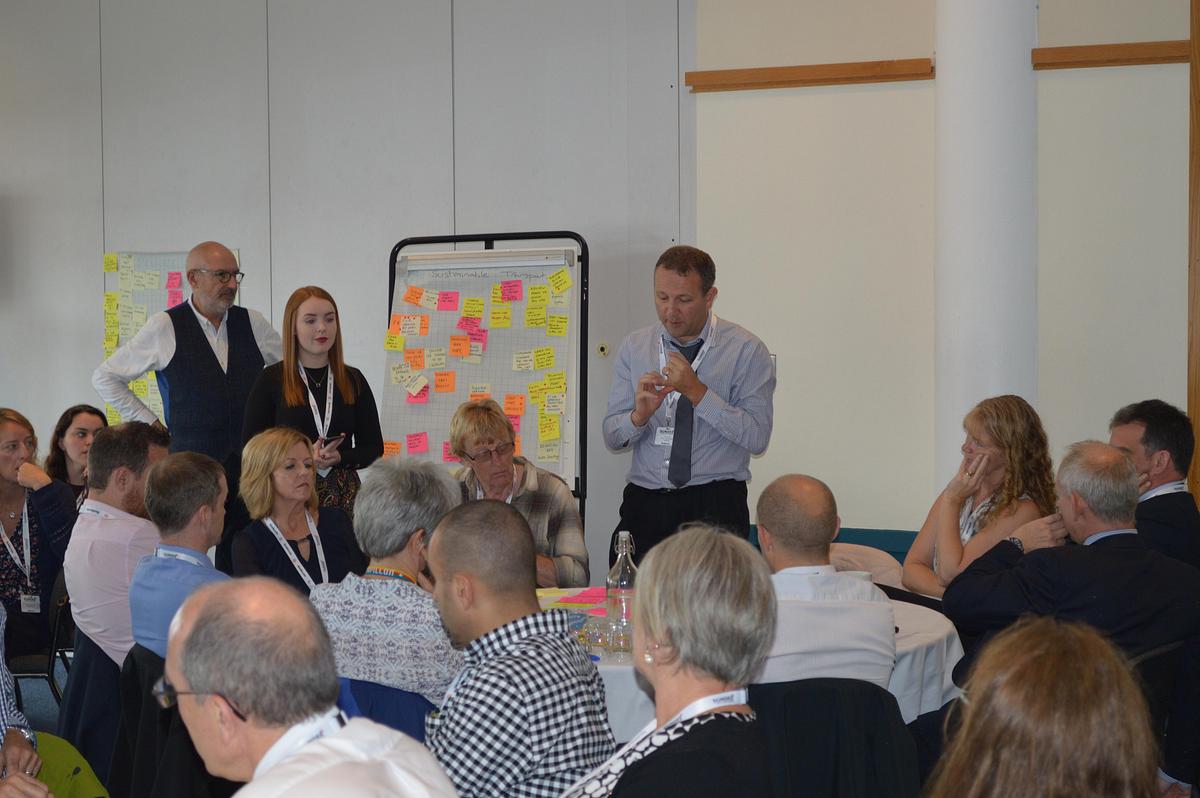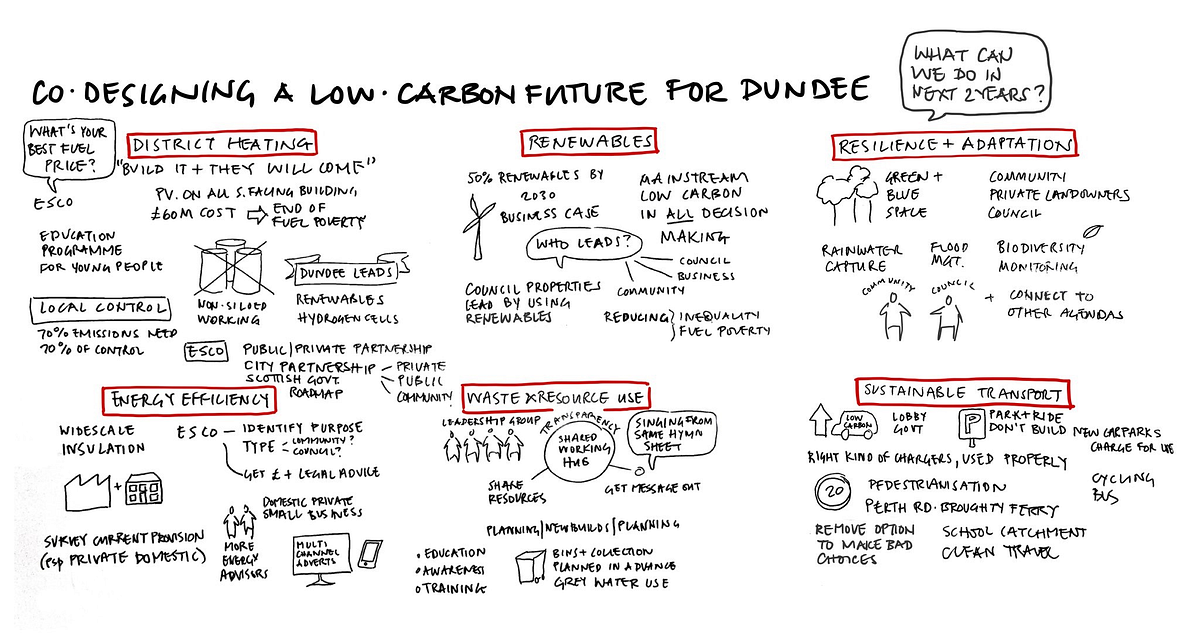
Convened by Dundee City Council, the event on 23 August brought together representatives from over 20 public, private and community organisations across Dundee. The workshop was designed to gather big picture visioning and project ideas, on emission reductions and adaptation, to take the city to 2030.
The event follows after Dundee City Council signed the Covenant of Mayors for Climate and Energy in March 2018, committing Dundee to develop a Sustainable Energy and Climate Action Plan (SECAP), to reduce the city’s CO2 emissions by at least 40% by 2030. The Covenant of Mayors is the world's largest movement for local climate and energy actions.
The signing of the Covenant is part of a series of green initiatives taken by the Council, to drive a ‘Sustainable Dundee’ communications campaign. The SECAP is to be implemented within two years of signing.
Driving Sustainable Dundee
Demonstrating senior-level commitment and support for Dundee’s ambitions, Council Leader Cllr John Alexander opened the workshop.
Bryan Harris, Sustainability and Climate Change Manager with Dundee City Council, presented the dimensions of the SECAP and the emissions pathway to the 40% target and commented:
"It’s fantastic to see the level of engagement and enthusiasm for this city-wide vision. Dundee’s transition to a low carbon society can only be achieved with everyone’s input. We need government, businesses, public sector, and individuals to play their part in delivering local solutions. We are already seeing the benefits of this collaborative approach. There is a strong ethos and understanding that by combining resources, coming together and building on local strengths, the region will be in a far stronger position to successfully capitalise on the significant environmental, social and economic opportunities offered by and through the SECAP. Today’s event is a good start and we look forward to further engagement."
Dr Joseph Hagg from Adaption Scotland talked through projected climate trends for Dundee, and set out significant risks and vulnerabilities.
Actions for 2030 vision
Dynamic facilitation and round-table discussions helped to realise creative, visionary thinking and productive team work among attendees. Participants seized on multiple benefits for a zero-carbon future: from an energy services company and the use of green and blue space to using a £60m investment in PV to eliminate fuel poverty in Dundee. The 50 people who attended identified over 100 actions across the across the 6 SECAP strategic areas of Sustainable Transport, Resilience & Adaptation, Waste & Resource Use, Renewables, Energy Efficiency and District Heating.
SSN Capacity Building Manager Catherine Pearce, who took part in the day, said:
“A fundamental call was made for collaborative, cross sectoral sharing, in order to mainstream and integrate the SECAP, and zero carbon, across all planning and decision making. This event was really a valuable exercise and could be a model for others to use.”
Conversations pointed to the leadership and ambition across the city, and the intent to go much further. The hard work and creative thinking generated at this event will feed into Dundee's Sustainable Energy and Climate Action Plan which is due for official launch early next year.

The August workshop will be complemented by an international seminar taking place on 20 September in Dundee, organised by the Academy of Urbanism and University of Dundee, Contemporary Approaches to Sustainability in European Cities. This special event will consider how contemporary strategies are applied to make medium-sized cities more sustainable in environmental, socio-economic and cultural terms. The programme will include senior speakers from leading Academy of UrbanismEuropean City Finalists, including Bilbao, Aarhus, Freiburg and Ljubljana together with Scottish and UK specialists.